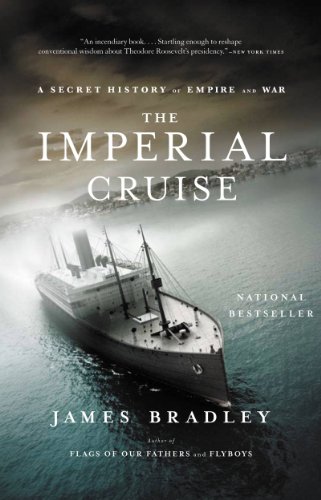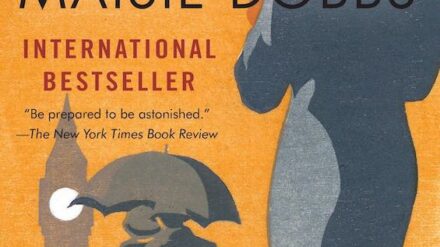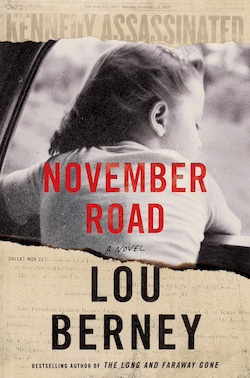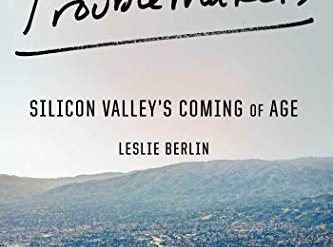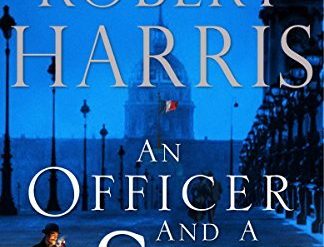
The fifty-plus titles listed here illuminate the subject of racism in a variety of ways. Both nonfiction and fiction works are included. Make no mistake: these are all good books about racism, and I read and reviewed them all on this site. Racism is America’s original sin. Its origins lie in Europeans’ first explorations of the New World in the late 15th century. But in some cases racism is not the primary subject or the dominant theme. In every book, however, racism is integral to the story.
Estimated reading time: 11 minutes
First come the seven top books about racism I’ve reviewed on this site. Two are novels, five nonfiction. The other titles follow in two sections, one each for fiction and nonfiction. Within each section, books are listed in alphabetical order by the authors’ last names.
This post was updated on September 20, 2023.
The 7 top books about racism
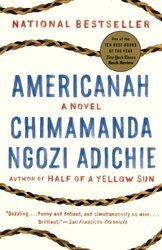
Americanah by Chimamanda Ngozi Adichie—Race, without blinders on
Viewed through the eyes of a Nigerian immigrant, American racism is puzzling as well as painful. Anyone who has traveled more than casually in Africa is well aware that the continent teems with diversity. Lumping all Black Africans or African-Americans together as one “race” is worse than folly. It’s fully as self-defeating as US history has proven.
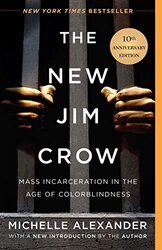
The New Jim Crow: Mass Incarceration in the Age of Colorblindness by Michelle Alexander—Reexamining mass incarceration in America
Mass incarceration has inflicted a terrible price on the United States. A product of the “War on Drugs” launched in the Reagan Administration and expanded under Bill Clinton, the indiscriminate jailing of black and brown Americans over typically minor drug offenses has hollowed out communities across the country and caused untold suffering.
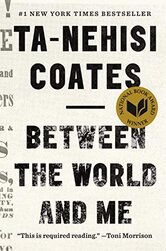
Between the World and Me by Ta-Nehisi Coates—A brilliant analysis of racism today
Growing up Black can be a challenging experience anywhere in the United States today. But life in big-city ghettoes like Baltimore’s is particularly difficult. In this memoir, framed as a letter to his young son, one of the country’s leading essayists reflects on the experience.
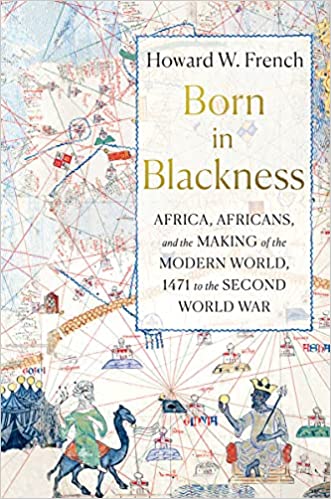
Born in Blackness: Africa, Africans, and the Making of the Modern World, 1471 to the Second World War by Howard W. French—An eye-opening account of Africa’s pivotal role in world history
We’ve been taught that the modern world dawned when Christopher Columbus arrived in the Caribbean in 1492 in search of a route to the riches of “India.” In fact, for centuries, historians have been telling us that everything changed because explorers from Spain and Portugal set out across the unknown reaches of the seas to establish new trade routes to what we know today as China, Indonesia, and India. Without question, the ensuing Columbian Exchange played a large role in setting off the Great Divergence between East and West. But in Born in Blackness, a compelling new revisionist history, Howard W. French persuasively offers an alternative explanation about the origin of the shift.
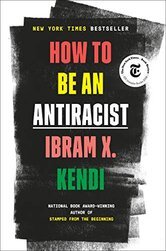
How to Be an Antiracist by Ibram X. Kendi—Racism still kills
What we view in the US today as racism has for the most part gone underground, its outward and most violent expressions widely discouraged. But if racism is more polite today than under slavery and Jim Crow, it is little less pervasive. Racism is deeply embedded in the infrastructure of American society—what so many call “structural” or “institutional racism”—and it cannot be successfully addressed without uprooting the legal and political basis on which it rests. Lynching is an artifact of the past, but racism still kills, shortening the lives of Black and Brown people not just through occasional official violence but on a large scale through inequities in healthcare, housing, criminal justice, and tax policy. That’s the central message of historian Ibram Kendi’s groundbreaking book, How to Be an Antiracist.
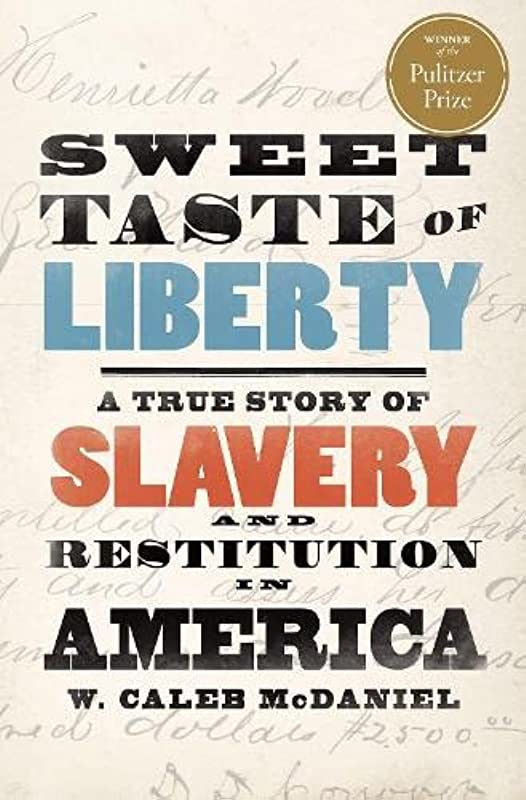
Sweet Taste of Liberty: A True Story of Slavery and Restitution in America by W. Caleb McDaniel—Reparations for slavery—in the 19th century
Over the past decade, beginning with the police murders that triggered the Black Lives Matter movement, discussion of reparations for slavery has surfaced in public discourse across the United States. After all, some four million African-Americans were enslaved in 1860. And their descendants, the overwhelming majority of the forty-two million Black people in the USA today, live with that legacy.
To many of us—a clear majority of African-Americans and more than a quarter of the US population as a whole—agree that that legacy affects Black lives a great deal today. Its central pillar—systemic and pervasive racism—has held back generations of African-Americans for four centuries. Many know now that reparations could begin to reduce the damage. But reparations are far from a new idea. They were a subject of debate in the nineteenth century even while slavery was still in force. And historian Caleb McDaniel’s masterful, Pulitzer-Prize-winning book, Sweet Taste of Liberty, brings that debate to light.
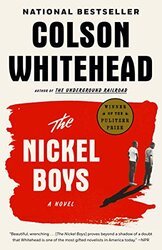
The Nickel Boys by Colson Whitehead—A brilliant novel dramatizes life under Jim Crow
In 2020 American society lurched a little closer toward a reckoning with the deeply entrenched racism that has poisoned our history ever since 1619. But with our attention rightfully drawn toward police murders of young Black men, many of us have lost perspective on how much worse conditions were for people of color a mere few decades ago under Jim Crow. And history books, no matter how truthful, fail to make us understand the impact on the Black and Brown people who bore the brunt of racist policies and conduct. But, at its best, historical fiction can cut through the abstractions, the generalizations, and the statistics and confront us with the raw reality. Books like Colson Whitehead’s brilliant Pulitzer-Prize-winning novel a Florida reform school, The Nickel Boys, offer a vivid and moving reminder of what so many of us have forgotten—or never been willing to admit.
25 other good books about racism: novels
The Mandela Plot by Kenneth Bonert—A novel about the anti-apartheid struggle
The Whites by Richard Price, writing as Harry Brandt—Cops out of control
Horse by Geraldine Brooks—A novel about a famous racehorse sheds light on slavery
Cadillac Jukebox (Dave Robicheaux #9) by James Lee Burke—The master of Louisiana noir
The Parable of the Sower (Parable #1 of 2) by Octavia E. Butler—A superb dystopian novel
The Parable of the Talents (Parable #2 of 2) by Octavia E. Butler—Classic science fiction with a timely message
Embassy Wife by Katie Crouch—Life in Namibia for the women and men of the US Embassy
Washington Black by Esi Edugyan—A haunting coming-of-age story about slavery and science in the 19th century
The Night Watchman by Louise Erdrich—Louise Erdrich on Indian cultural genocide
Sycamore Row by John Grisham—The belated sequel to John Grisham’s breakthrough first novel
Homegoing by Yaa Gyasi—African Roots through African eyes
Barracoon: The Story of the Last “Black Cargo” by Zora Neale Hurston—The last living former slave tells his story
Blindspot by Jane Kamensky and Jill Lepore—A hilarious tale of Colonial America by two history professors
Bluebird, Bluebird by Attica Locke—A compelling tale of murder, race, and family secrets
A Burning by Megha Majumdar—Terrorism, corruption, and Hindu nationalism in India today
A Treacherous Paradise by Henning Mankell—Race relations in colonial Africa through the eyes of a Swedish novelist
Deacon King Kong by James McBride—Unforgettable characters in this delightful new novel
The Heaven and Earth Grocery Store by James McBride—Is this the Great American novel?
Charcoal Joe (Easy Rawlins #14) by Walter Mosley—Everybody’s favorite African-American detective
There There by Tommy Orange—A bestselling new novel casts a bright light on urban Indian life
The Strivers’ Row Spy (Renaissance #1) by Jason Overstreet—African-American history comes to life in this engaging spy novel
Harlem Shuffle by Colson Whitehead—A gripping crime novel set in Harlem by Colson Whitehead
A Kind of Freedom by Margaret Wilkerson Sexton—A powerful family drama about living with Jim Crow and the War on Drugs
American Spy by Lauren Wilkinson—An African-American spy in the maelstrom of Cold War rivalry in Africa
Interior Chinatown by Charles Yu—Racist stereotyping dominates this award-winning Hollywood satire
Four Treasures of the Sky by Jenny Tinghui Zhang—The Chinese immigrant experience in 19th-century America
20 other good books about racism: nonfiction
One Person No Vote: How Voter Suppression Is Destroying Our Democracy by Carol Anderson—Voter suppression, gerrymandering, and voter ID laws brilliantly explained
Black Against Empire: The History and Politics of the Black Panther Party by Joshua Bloom and Waldo E. Martin III—Berkeley in 1969: Black Panthers, the FBI, and the Vietnam War
The Imperial Cruise: A Secret History of Empire and War by James Bradley—Teddy Roosevelt and the dark side of American foreign policy
The Black Calhouns: From Civil War to Civil Rights with One African American Family by Gail Lumet Buckley—Living the African-American experience
Asian American Histories of the United Statesby Catherine Ceniza Choy—An Asian American history book focused on the present
99 to 1: How Wealth Inequality Is Wrecking the World and What We Can Do About It by Chuck Collins—Wealth inequality: how the 99% can fight back
Half American: The Epic Story of African Americans Fighting World War II at Home and Abroad by Matthew F. Delmont—African-Americans in World War II
Evicted: Poverty and Profit in the American City by Matthew Desmond—Does the profit motive cause homelessness?
An Indigenous Peoples’ History of the United States by Roxanne Dunbar-Ortiz—Revisionist US history from an indigenous perspective
The Immortal Irishman: The Irish Revolutionary Who Became an American Hero by Timothy Egan—The Irish: the “Muslim immigrants” of the nineteenth century
Ghettoside: A True Story of Murder in America by Jill Leovy—How to make black lives matter to police
American Whitelash: A Changing Nation and the Cost of Progressby Wesley Lowery—Understanding white supremacy through personal stories
Malcolm X: A Life of Reinvention by Manning Marable—Malcolm X, reconsidered in the context of his time
Taxing the Poor: Doing Damage to the Truly Disadvantaged by Katherine S. Newman and Rourke L. O’Brien—Poverty in America: why the poor get poorer
Becoming by Michelle Obama—The Michelle Obama memoir is an extraordinary story
The Guarded Gate: Bigotry, Eugenics, and the Law That Kept Generations of Jews, Italians, and Other European Immigrants Out of America by Daniel Okrent—The racist movement that stopped immigration a century ago
Infamy: The Shocking Story of the Japanese-American Internment in World War II by Richard Reeves—The shameful story of Japanese-American Internment in WWII
A Brief History of Everyone Who Ever Lived: The Human Story Retold Through Our Genes by Adam Rutherford—Debunking the popular myths about genetics
Hidden Figures: The Story of the African-American Women Who Helped Win the Space Race by Margot Lee Shetterly—The amazing true story of the Black women in the space race
The Immortal Life of Henrietta Lacks by Rebecca Skloot—The dark side of medical history
Just Mercy: A Story of Justice and Redemption by Bryan Stevenson—A searing look at America’s broken criminal justice system
Pogrom: Kishinev and the Tilt of History by Steven J. Zipperstein—In a prelude to the Holocaust, the Kishinev pogrom shocked the world
For related reading
You might also be interested in 10 enlightening books about poverty in America and Understanding American history: A reading list.
And you can always find my most popular reviews, and the most recent ones, on the Home Page.

